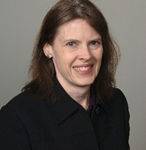Session Description
This presentation will discuss ways of integrating general education literacies into an online capstone course for Professional Studies degree learners. The capstone course is the culminating experience for the Bachelor of Science in Professional Studies and builds on the concepts covered within the program of study. The capstone course provides learners with the opportunity to integrate key general education literacies and synthesize the knowledge and skills acquired throughout learner coursework.
Presenter(s)
 Carolyn Stevenson
Carolyn Stevenson
Purdue University Global
Dr. Carolyn Stevenson is currently a full-time faculty member for Purdue University Global. She completed her Ed.D. from Roosevelt University, M.B.A. from Kaplan University, M.A. in Communications from Governor’s State University and B.A. in English from Northern Illinois University. She has been cited for her expertise in online learning, qualitative research, open educational resources, and prior learning. She is also a regular reviewer for conference papers and textbooks and has served in various offices and committees for the American Education Research Association. Carolyn has over 20 years teaching and administrative experience in higher education at both the undergraduate and graduate levels. Her most recent publication is a text entitled Enhancing Higher Education Accessibility through Open Education and Prior Learning, published by IGI Global in 2021.

 Jennifer Schneider
Jennifer Schneider Ariana Eichelberger
Ariana Eichelberger Kelvin Beckett
Kelvin Beckett Laureen Kodani
Laureen Kodani Helen Torigoe
Helen Torigoe Kawehi Sellers
Kawehi Sellers
 Mary Laska
Mary Laska Ellen Cohn
Ellen Cohn